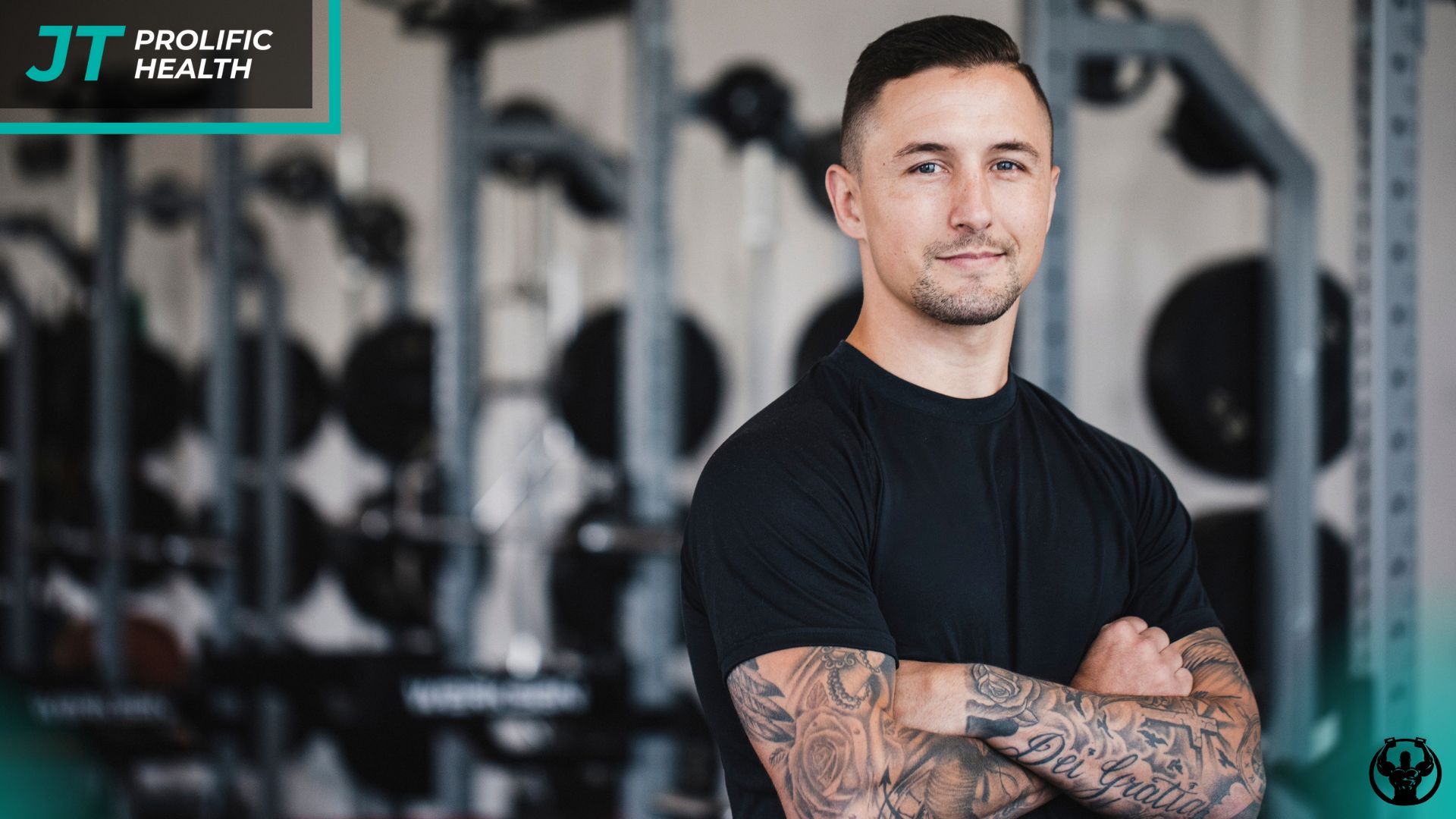Finding the right personal trainer can be the difference between achieving your fitness goals and wasting time and money on ineffective guidance. In Richmond, BC, the fitness industry has experienced tremendous growth, with numerous trainers offering their services across various facilities and independent practices. However, not all personal trainers are created equal, and the quality of instruction, expertise, and professionalism can vary significantly from one trainer to another.
The process of evaluating a personal trainer’s quality requires a systematic approach that goes beyond surface-level impressions or marketing claims. Many people make the mistake of choosing a trainer based solely on personality or convenience, only to discover later that their chosen professional lacks the necessary skills, knowledge, or commitment to help them succeed. This oversight can lead to frustration, injury, or simply a lack of progress toward fitness objectives.
Quality evaluation encompasses multiple dimensions, including educational background, practical experience, communication skills, and the ability to create personalized programs that align with individual needs and goals. A truly exceptional personal trainer combines technical expertise with motivational abilities, safety consciousness, and ongoing professional development. They understand that each client is unique and requires a tailored approach that considers their fitness level, medical history, lifestyle constraints, and personal preferences.
The investment in personal training represents more than just financial commitment; it’s an investment in your health, well-being, and long-term quality of life. Therefore, taking the time to thoroughly evaluate potential trainers before making a decision is crucial for ensuring you receive the highest quality service and achieve the best possible outcomes. This comprehensive evaluation process will help you identify trainers who possess the knowledge, skills, and dedication necessary to guide you safely and effectively toward your fitness goals.
Key Takeaways
For additional context, see this comprehensive guide.
- Certification and Education Matter: Look for trainers with recognized certifications from reputable organizations such as ACSM, NASM, or CSEP, combined with relevant educational backgrounds in exercise science, kinesiology, or related fields.
- Experience Speaks Volumes: Evaluate both the quantity and quality of a trainer’s experience, focusing on their track record with clients who have similar goals and challenges to yours.
- Communication is Critical: Assess how well the trainer explains concepts, listens to your concerns, and adapts their communication style to match your learning preferences and comfort level.
- Safety Should Be Paramount: A quality trainer prioritizes proper form, injury prevention, and appropriate progression while maintaining comprehensive insurance coverage and emergency response capabilities.
- Personalization is Essential: Look for trainers who conduct thorough assessments, create customized programs, and regularly adjust training plans based on your progress and changing needs.
- Professional Boundaries and Ethics: Quality trainers maintain appropriate professional relationships, respect client confidentiality, and operate within their scope of practice while referring to other professionals when necessary.
- Ongoing Development Commitment: The best trainers continuously update their knowledge through continuing education, workshops, and staying current with industry research and best practices.
- Results-Oriented Approach: Effective trainers track progress systematically, set realistic timelines, and adjust strategies based on measurable outcomes rather than relying solely on subjective assessments.
Understanding the Foundation of Quality Personal Training

For additional context, see detailed information on this topic.
The foundation of quality personal training rests on a combination of scientific knowledge, practical application, and interpersonal skills that work together to create an effective and safe training environment. Understanding these fundamental elements helps you recognize what to look for when evaluating potential trainers and sets realistic expectations for the professional relationship.
Quality personal training begins with a solid educational foundation that encompasses anatomy, physiology, biomechanics, and exercise science principles. This knowledge base enables trainers to understand how the human body responds to different types of exercise, how to design programs that promote adaptation while minimizing injury risk, and how to modify exercises for individuals with varying abilities or limitations. Without this foundation, trainers may rely on outdated methods, follow trends without scientific backing, or fail to recognize when modifications are necessary.
The application of this knowledge through practical experience is equally important. A trainer might possess extensive theoretical knowledge but lack the real-world experience necessary to effectively work with diverse populations or handle unexpected situations. Quality trainers develop their skills through hands-on experience with various client types, learning to adapt their approach based on individual responses and needs. This experience teaches them to recognize subtle signs of fatigue, improper form, or potential problems before they become serious issues.
Professional competence also extends to understanding the scope of practice and knowing when to refer clients to other healthcare professionals. Quality trainers recognize the limits of their expertise and maintain relationships with physiotherapists, nutritionists, physicians, and other specialists who can provide additional support when needed. This collaborative approach ensures clients receive comprehensive care that addresses all aspects of their health and fitness journey.
Evaluating Credentials and Professional Qualifications


For additional context, see our in-depth resource.
The evaluation of credentials and professional qualifications serves as your first line of defense against unqualified or poorly prepared trainers. In the fitness industry, where barriers to entry can be relatively low, verifying proper credentials helps ensure you’re working with someone who has invested in their professional development and meets industry standards for knowledge and competency.
Start by examining the trainer’s certification credentials, focusing on organizations that are widely recognized and respected within the fitness industry. Look for certifications from bodies such as the American College of Sports Medicine (ACSM), National Academy of Sports Medicine (NASM), or the Canadian Society for Exercise Physiology (CSEP). These organizations require candidates to demonstrate comprehensive knowledge through rigorous examinations and maintain their credentials through continuing education requirements.
Educational background provides additional insight into a trainer’s knowledge base and commitment to understanding the science behind effective training. While a degree isn’t always necessary, trainers with formal education in exercise science, kinesiology, biomechanics, or related fields often possess deeper understanding of physiological principles and research-based training methods. This educational foundation can be particularly valuable when working with special populations or addressing complex fitness challenges.
Specialty certifications can indicate a trainer’s expertise in specific areas that may be relevant to your goals. For example, if you’re interested in strength training, look for additional certifications in powerlifting, Olympic lifting, or strength and conditioning. If you have specific health concerns, certifications in corrective exercise, senior fitness, or medical exercise might be more relevant. For guidance on what to look for, our comprehensive guide on trainer qualifications provides detailed information about important certifications.
Don’t forget to verify that certifications are current and in good standing. Reputable certification bodies maintain databases where you can confirm a trainer’s status and ensure they’re meeting continuing education requirements. This verification process helps protect you from trainers who may have let their credentials lapse or who might be misrepresenting their qualifications.
Assessing Communication Skills and Teaching Ability


Effective communication forms the cornerstone of successful personal training relationships, as it directly impacts your ability to understand instructions, feel comfortable asking questions, and maintain motivation throughout your fitness journey. A trainer’s communication skills encompass not only their ability to explain exercises and concepts clearly but also their capacity to listen actively, provide constructive feedback, and adapt their teaching style to match your learning preferences.
During initial consultations or trial sessions, pay close attention to how the trainer explains exercises and concepts. Quality trainers break down complex movements into manageable components, use language appropriate to your fitness knowledge level, and provide multiple ways to understand the same concept. They should be able to explain not just what you’re doing, but why you’re doing it, helping you understand the purpose behind each exercise and how it contributes to your overall goals.
Active listening skills are equally important and can be observed through how the trainer responds to your questions, concerns, and feedback. They should demonstrate genuine interest in understanding your goals, limitations, and preferences rather than simply imposing their preferred training methods. Quality trainers ask follow-up questions, remember details from previous sessions, and adjust their approach based on your responses and progress.
The ability to provide effective feedback during training sessions is crucial for both safety and progress. Watch how the trainer corrects form issues – they should be specific, encouraging, and focused on helping you understand the correct movement pattern rather than simply pointing out what’s wrong. Good trainers also recognize and acknowledge improvements, helping maintain motivation and confidence throughout the training process.
Teaching ability extends beyond verbal communication to include demonstration skills and the use of various instructional methods. Some people learn best through visual demonstration, others through tactile guidance, and still others through detailed verbal instruction. Quality trainers recognize these different learning styles and adapt their teaching methods accordingly, ensuring that each client can effectively understand and execute the prescribed exercises.
Evaluating Program Design and Customization Capabilities
The ability to design and customize training programs represents one of the most critical skills that separate quality personal trainers from those who simply guide clients through generic workouts. Effective program design requires understanding of exercise science principles, assessment skills, and the creativity to develop routines that are both effective and engaging for individual clients.
Quality trainers begin with comprehensive assessments that go beyond basic measurements to include movement screens, fitness testing, goal clarification, and lifestyle analysis. These assessments provide the foundation for creating truly personalized programs that address your specific needs, limitations, and objectives. The trainer should be able to explain how the assessment results influence their program recommendations and why certain exercises or approaches are most appropriate for your situation.
Program progression demonstrates a trainer’s understanding of how the body adapts to exercise stress and their ability to systematically advance your training over time. Quality programs include clear progression strategies that gradually increase intensity, complexity, or volume while allowing adequate recovery time. The trainer should be able to explain their progression philosophy and show how they plan to advance your program as you improve.
Customization extends beyond exercise selection to include consideration of your schedule, preferences, equipment availability, and any physical limitations or health concerns. A quality trainer creates programs that fit realistically into your lifestyle while still challenging you appropriately. They should also be willing and able to modify exercises on the spot when needed, whether due to equipment availability, how you’re feeling on a particular day, or unexpected issues that arise during training.
The integration of different training modalities and the ability to balance various fitness components showcase a trainer’s comprehensive understanding of exercise programming. Quality trainers understand how to effectively combine strength training, cardiovascular exercise, flexibility work, and other components based on your goals and needs. They can explain how different types of training complement each other and contribute to overall fitness development. For more insights into effective training approaches, you can explore detailed information on this topic in our related resources.
Safety Protocols and Risk Management
Safety consciousness and effective risk management separate professional trainers from those who may put clients at unnecessary risk through poor judgment, inadequate preparation, or insufficient knowledge of injury prevention strategies. Evaluating a trainer’s approach to safety provides crucial insight into their professionalism and competence.
Proper screening and health history evaluation should be standard practice for any quality trainer. They should require completion of health questionnaires, discuss any medical conditions or previous injuries, and understand when medical clearance is necessary before beginning a training program. Trainers who skip this step or seem uncomfortable discussing health issues may lack the knowledge or professionalism necessary to train clients safely.
Emergency preparedness demonstrates a trainer’s commitment to client safety and their ability to handle unexpected situations. Quality trainers maintain current CPR and first aid certifications, understand emergency procedures for their training facility, and know how to respond to common exercise-related emergencies. They should also carry professional liability insurance to protect both themselves and their clients.
Form correction and injury prevention strategies should be evident throughout every training session. Quality trainers prioritize proper movement patterns over heavy weights or high intensity, consistently monitor form throughout exercises, and stop or modify activities when form begins to deteriorate. They understand the difference between appropriate exercise discomfort and potentially harmful pain, and they educate clients about these distinctions.
Equipment safety and facility awareness round out a comprehensive safety approach. Quality trainers ensure equipment is properly maintained and used correctly, maintain clean and organized training spaces, and understand how environmental factors might affect training safety. They should also have protocols for equipment failure or facility emergencies and be able to adapt training plans when safety concerns arise.
About Prolific Health
Prolific Health stands as Richmond and Vancouver’s premier destination for professional personal training services, combining scientific expertise with personalized attention to help clients achieve their fitness goals safely and effectively. Our team of certified professionals brings together extensive education, practical experience, and ongoing professional development to provide the highest quality training services in the region.
At Prolific Health, we understand that evaluating trainer quality is crucial for your success, which is why we maintain the highest standards for our team members. All our trainers hold recognized certifications from respected organizations and participate in continuous education to stay current with the latest research and best practices in exercise science and training methodology. Our commitment to professional excellence ensures that every client receives expert guidance backed by solid scientific principles.
Our approach to personal training emphasizes thorough assessment, customized program design, and systematic progression monitoring to ensure optimal results while maintaining safety as our top priority. We believe that quality training goes beyond simply guiding clients through workouts – it involves education, motivation, and the development of long-term healthy habits that extend far beyond the gym environment. For those seeking expert guidance in strength development, our comprehensive strength training programs provide the foundation for lasting fitness success.
Frequently Asked Questions
How can I verify a personal trainer’s certifications are legitimate?
Most reputable certification organizations maintain online databases where you can verify a trainer’s credentials. Visit the certifying body’s website and use their verification tool with the trainer’s name or certification number. Always ensure certifications are current and that the organization is recognized within the fitness industry.
What questions should I ask during an initial consultation?
Ask about their experience with clients who have similar goals, their approach to program design, how they handle form correction and safety, their continuing education practices, and their policies regarding missed sessions or program modifications. Also inquire about their philosophy on nutrition and whether they work with other health professionals.
How important is it for a trainer to have a formal education in exercise science?
While not always required, formal education in exercise science, kinesiology, or related fields provides valuable foundation knowledge about anatomy, physiology, and biomechanics. This educational background often translates to better understanding of training principles and more effective program design, especially for complex situations or special populations.
What red flags should I watch for when evaluating trainers?
Be cautious of trainers who guarantee unrealistic results, push supplements aggressively, lack proper certifications, seem uncomfortable discussing safety protocols, or demonstrate poor communication skills. Also avoid trainers who use a one-size-fits-all approach or seem unwilling to modify programs based on your needs and feedback.
How can I assess a trainer’s ability to work with my specific goals?
Ask about their experience with clients who have similar objectives, request examples of how they’ve helped others achieve comparable goals, and discuss their specific approach to your situation. A quality trainer should be able to outline a clear strategy and explain how they’ll measure progress toward your objectives.
Should I expect a trainer to provide nutrition advice?
Trainers can provide general nutrition education and guidance, but they should not prescribe specific diets or provide medical nutrition therapy unless they hold appropriate credentials. Quality trainers understand their scope of practice and will refer you to registered dietitians or nutritionists for detailed nutrition planning.
How often should a good trainer reassess my program and progress?
Quality trainers typically conduct formal reassessments every 4-6 weeks, though they should continuously monitor your progress and make minor adjustments as needed. Regular reassessments help ensure your program remains challenging and appropriate as your fitness level improves and your needs evolve.
What role should personality play in choosing a trainer?
While personality compatibility is important for maintaining motivation and enjoying your sessions, it shouldn’t be the primary factor in your decision. Focus first on qualifications, experience, and professional competence, then consider personality fit among qualified candidates. The right trainer should challenge you appropriately while maintaining a supportive and encouraging environment.
Conclusion
Evaluating the quality of a personal trainer requires a systematic approach that examines multiple factors beyond surface-level impressions or marketing claims. By focusing on credentials, experience, communication skills, program design capabilities, and safety protocols, you can identify trainers who possess the knowledge, skills, and professionalism necessary to help you achieve your fitness goals safely and effectively.
Remember that the investment in quality personal training extends far beyond the immediate financial cost – it’s an investment in your long-term health, well-being, and quality of life. Taking the time to thoroughly evaluate potential trainers before making a commitment can save you from frustration, injury, and wasted resources while setting the foundation for a successful and rewarding fitness journey.
The process of finding the right trainer may require patience and careful consideration, but the benefits of working with a truly qualified professional make this effort worthwhile. Quality trainers not only guide you through effective workouts but also educate you about proper form, help you develop healthy habits, and provide the motivation and accountability necessary for long-term success. By using the evaluation criteria outlined in this guide, you’ll be well-equipped to make an informed decision that supports your fitness goals and enhances your overall well-being.



